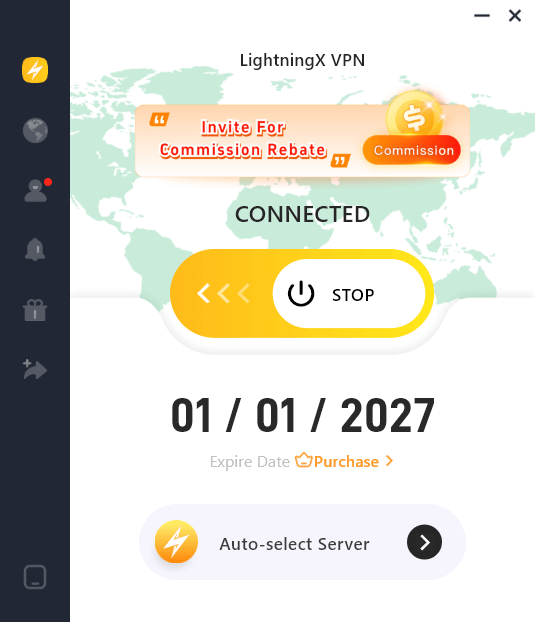Talking about internet navigation, you may be confused with web browsers and search engines. They are two fundamental tools to let you browse on the web.
Web browser vs search engine, what’s the difference between them? In this article, we will break down the main differences between these two web navigation tools.
What Is a Web Browser?
A web browser is a software application used to access and display content on the World Wide Web. It is an essential tool to provide an interaction interface between the collection of data and users. A web browser is a gateway to the internet. It translates websites’ data into readable formats, allowing users to view text, images, videos, etc.
Popular web browsers include Google Chrome, Mozilla Firefox, Microsoft Edge, Safari, Opera, etc.
The main functions of a web browser include visiting websites via URLs (Uniform Resource Locator), rendering web pages and other media content, managing bookmarks, browsing history, extensions, and other settings, etc.
Web browsers also offer security features like the encryption protocol HTTPS and other privacy settings.
The web browser works as follows:
- After a user enters a URL in the browser, the browser sends the request to a web server.
- The server responds and sends needed data including HTML files, texts, images, videos, stylesheets, JavaScript, and other content to the browser.
- Then the browser interprets and processes these data and presents it in web pages to users.
What Is a Search Engine?
A search engine is a web-based tool, mainly used for indexing and retrieving information on the web. It helps users find answers to the search queries. Users can use it to find relevant web pages, images, videos, and other media content.
Well-known search engines include Google, Bing, Yahoo, Yandex, etc.
The key features of a search engine include crawling and indexing websites on the internet, providing search results based on the user’s search keyword, ranking websites on the internet based on SEO rules (mainly relevance and authority), etc.
The search engine works as follows: Crawling > Indexing > Ranking.
- The search engine uses bots/crawlers/spiders to explore and crawl online websites. It stores the crawled information and indexes those websites and pages, making it easier to retrieve later.
- After a user makes a search request (usually a keyword or query) in the search engine, the search engine scans and ranks websites based on its algorithms and SEO rules and provides the most relevant search results to the user.
Related: 4 Best Private Browsers or Search Engines for Online Privacy
Web Browser vs Search Engine – 8 Key Differences
Primary Function
A web browser is mainly responsible for processing and rendering web pages. A search engine is mainly used for crawling, indexing, ranking, and displaying relevant web pages.
Components
A search engine usually has a database containing various web pages. It contains crawlers, index systems, page ranking algorithms, search query processors, etc.
A web browser doesn’t have a database, but it stores user’s browsing information like browsing history, cookies, caches, etc. It contains a content rendering engine, address bar, bookmarks, navigation buttons, and other settings.
User Input
A web browser lets users enter a URL (a website link) to visit a website. A search engine lets users enter keywords or phrases to find possible answers to the search query.
Working Process
A web browser sends a request to a web server to display content. A search engine checks its index of websites and ranks the results by relevance and its algorithm.
Purpose of Use
Use a web browser to access and navigate the web. Use a search engine to find needed information on the internet like websites, images, videos, etc.
Type of Displayed Results
A web browser displays a specific website and its content. A search engine displays a list of websites or content based on the user’s search query.
Accessibility or Installation
A web browser needs installation. It requires an internet connection to access and work. A search engine doesn’t need installation. It needs a browser and an internet connection to work.
Examples
Web browser: Chrome, Firefox, Edge, Safari, Opera, etc.
Search engine: Google, Bing, Yahoo, etc.
Best VPN for Browsers and Search Engines
If you need a VPN to access geo-restricted websites in browsers or want to access web browsers or search engines that are not available in your region, you can try LightningX VPN – one of the most popular VPNs for Windows, Mac, Android, iOS, TV, etc. It also offers Edge, Firefox, and Chrome VPN extensions.
LightningX VPN offers a vast network of servers in 70+ countries. You can use this VPN to get a virtual IP address in a different region and visit local content and websites in browsers.
Use this VPN to unblock YouTube, TikTok, Instagram, Twitter, Facebook, Netflix, Disney+, HBO, Hulu, and more applications and services from all over the world.
LightningX VPN uses strong encryption protocols and algorithms to encrypt your online data and activities. It also hides your real IP address and uses a strict no-logs policy. Your data and privacy are well protected.
Use this VPN tool to access global content and encrypt your traffic in various web browsers now.

Conclusion
This post gives a detailed introduction to web browsers and search engines and explains their differences.
Web browsers and search engines are complementary tools. They serve different purposes to help you flawlessly and efficiently browse the internet. A browser can function without a search engine, but you need a web browser to access a search engine. You can use a search engine in a web browser to quickly find relevant results to your search.


















